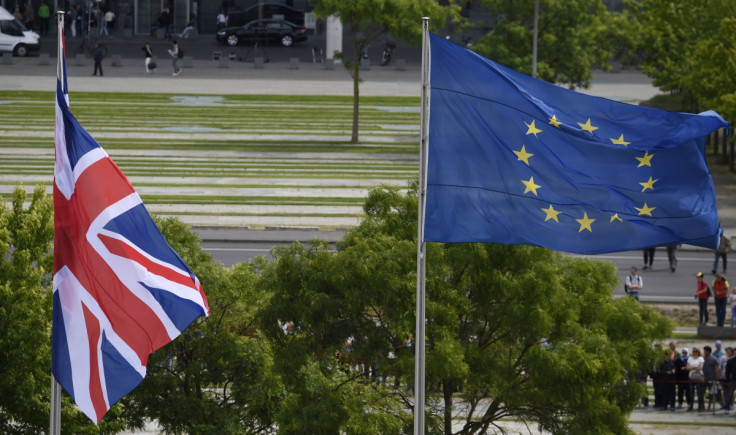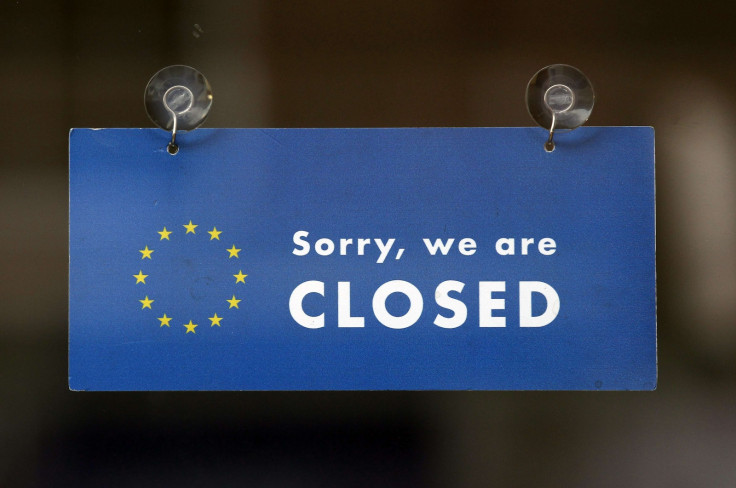Brexit will throw British businesses into the jaws of more red tape
A year after the EU referendum, not one of the important issues has been resolved.

Since the EU referendum was announced on 22 February 2016, the UK has seen a drastic decline in its fortunes. The nation has been toppled from its place as the fastest-growing economy in the G7 to the slowest.
Behind the UK's drastic decline is the threat of British businesses falling into the jaws of more red tape and bureaucracy, punishing tariffs and trading terms.
Far from restoring sovereignty, persisting with Brexit will shackle our Parliament, our Government and our country to terms that we have little control over.
In February last year, we were at the top table of Europe: we had a bespoke deal with the EU; we were not part of Schengen, and not part of the euro.
The truth is, the UK had never lost its sovereignty. In fact, we have the best of both worlds. Though not a superpower, we are a global power: a member of the G7, a permanent seat at the Security Council, the G20, a member of NATO, but no longer at the top table of the EU.
Europe is now growing at a faster pace than the UK, and we are the laughing stock of Europe. When I challenge people on EU laws because they say, "I want to take back control and leave", I ask them to name one law that affects them on a day-to-day basis, and they cannot name even one. This is because those laws are virtually all made in the UK, in our Parliament.
Last week, Baroness Verma, Chair of the EU External Affairs Sub-Committee, released a highly-anticipated report – 'Brexit: Trade in Goods' – on the future of the UK's relationship with the single market post-Brexit.
There is much in the report that raises enormous concern, including this warning: 'In the absence of a FTA [Free Trade Agreement] with the EU after Brexit, tariffs would apply'.
This means accepting World Trade Organisation terms, such as a 10% tariff on trade in cars and up to 200% on some agricultural products. Given our deep integration in the EU supply chain, tariffs could indeed be levied multiple times across production processes.
The combined EU member states are the UK's single largest trading partner, accounting for 47% of our exports and 54% of our imports. A further 17% of our exports is destined for nations with which the UK has an FTA as a member of the EU, i.e. we already have, via the EU, FTAs for two thirds of our trade. On top of this the EU has just secured an FTA with Japan, which will take this to well over 70%.
Liam Fox and his merry band of Brexiteers want to sacrifice FTAs accounting for over 70% of our trade, including the largest free trade zone in the world on our doorstop accounting for 50% of our trade, chasing after the possibility of FTAs accounting for just over a quarter of our trade.
Anyone looking at this would say it is madness to sacrifice this, let alone take the risk. Why aren't people waking up to this?
If the Government is proposing taking us out of the customs union, it is also proposing a customs border between the UK and the EU.
Drawing this border could cripple British international trade, not only through the financial toll but also through customs procedures, inevitable delays and increased administration.
Concluding an FTA with the EU in the time we have allotted to conduct Article 50 negotiations is pure fantasy. Instead, we will tie ourselves in unnecessary red tape.
Enormous numbers of jobs in every sector will be at risk, from jobs in automotive manufacturing to civil aviation and finance.

We are a trading nation and we would be a lesser nation were it not for our manufacturing heritage. As chair of the Manufacturing Commission, I am pleased to see that our manufacturing export intensity has risen since 1991 from 30% to 47% in 2011.
Though manufacturing has declined as a share of our GDP from 30% in the 1970s to 10% today, 60% of our trade with the EU is in goods and any threat to our goods trade could undermine the 2.7 million jobs in UK manufacturing.
Furthermore, Easyjet has already said that it is going to set up a continental base, and the Centre for London think-tank estimates that up to 70,000 finance sector jobs could be lost to Paris, Frankfurt and other European cities.
For the Government, leaving the EU will bring down a plague on Whitehall. As Baroness Verma's report states, 'Administering UK-EU tariffs and non-tariff barriers—in the absence of a common regulatory system—would also significantly increase the work of HMRC'. How will the HMRC cope with this?
Whether Britain should remain in the single market has split the country, split the Conservative Party and split the Labour party; it is utter chaos. The repercussions are huge.
A year after the EU referendum, not one of the important issues has been resolved. We are still in the foothills.
Very soon, the British people will see that the Brexit Emperor has no clothes and we will realise that it is in the best interests of the country, the economy, British businesses and our citizens to continue to remain in the EU.
Lord Bilimoria is Founder and Chairman of Cobra Beer, cross bench peer, Chancellor of the University of Birmingham and Founding Chairman of the UK-India Business Council.
© Copyright IBTimes 2025. All rights reserved.






















